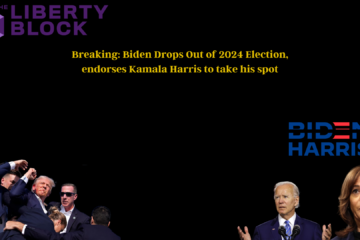Sponsored by five Republicans, five Democrats, and the House Majority Leader, House Bill 639 is an excellent bill, especially compared to the poison-pill-packed House Bill 544. The people of New Hampshire have long called for cannabis legalization, and now they finally have a shot. There are plenty of positive aspects to this bill, from possession limits 4 times greater than those of Massachusetts to prohibiting police from utilizing any resources whatsoever to enforce federal cannabis laws in our state. That being said, there are some parts of this bill that should probably be amended.
Consider the following texts taken straight from the bill:
318-F:1 II. “Cannabis” means all parts of the plant of the genus cannabis whether growing or not, the seeds thereof, the resin extracted from any part of the plant, and every compound, manufacture, salt, derivative, mixture, or preparation of the plant, its seeds, or its resin, including cannabis concentrate. “Cannabis” shall not include hemp, fiber produced from the stalks, oil, or cake made from the seeds of the plant, sterilized seed of the plant that is incapable of germination, or the weight of any other ingredient combined with cannabis to prepare topical or oral administrations, food, drink, or other product.
Doesn’t sound bad, right? Well, what about cannabinoids like Cannabidiol (CBD) and Hexahydrocannabinol (HHC), both of which are already legal? Based on the above, all of these would fall under the broad definition of cannabis and therefore be subject to the various restrictions that the bill entails. These are problematic for those who support liberty, but the good news is that amending this would be easy: add language specifying that cannabinoids and other cannabis-derived compounds that are already legal under federal law shall fall outside of the purview of this bill.
318-F:1 III. “Cannabis accessories” or “cannabis paraphernalia” means any equipment, products, or materials of any kind that are used, intended for use, or designed for use in planting, propagating, cultivating, growing, harvesting, composting, manufacturing, compounding, converting, producing, processing, preparing, testing, analyzing, packaging, repackaging, storing, vaporizing, or containing cannabis, or for ingesting, inhaling, or otherwise introducing cannabis into the human body.
This, again, extends too broadly. Water pipes—sold in basically every smoke shop ever—can certainly be described as ‘designed for use in inhaling cannabis into the human body’. Are they solely designed for this purpose? No, but they might fall under the jurisdiction of this bill unnecessarily. As before, the proposed fix is trivial: “Cannabis accessories” or “cannabis paraphernalia” means any equipment, products, or materials of any kind that are solely used, solely intended for use, or solely designed for use in…
318-F:4 Smoking Cannabis in Public Prohibited; Penalty. No person shall smoke cannabis in a public place. Any person who violates this section shall be guilty of a violation and may be fined not more than $50.
This is clearly inspired by the analogous text for alcohol, which is illegal to consume in public. The laws against drinking in public may be rationalized by some people because it can be consumed indoors without negatively affecting other people and the environment. Cannabis, on the other hand, produces smoke that could easily be inhaled by nearby individuals who may not wish to consume the drug. It could also permeate surrounding clothes and furniture. What is the natural solution to this problem? Smoking outside, of course! The rub here is that most outdoor spaces are either public or someone else’s private property. So, where is one supposed to smoke if they do not want to hotbox their living space? This text should be amended to allow smoking cannabis in public spaces as long as it does not reasonably disturb others. If you are not disturbing any members of the public within, say 25 feet of yourself, you should be legally allowed to light up in an open field in a park or in the woods without bothering anyone else or violating the law.
318-F:10 I (l) (4). A prohibition on giveaways of cannabis, cannabis products, or cannabis accessories
This is, truthfully, not a big deal, but while we’re making amendments anyway, why not remove this? As long as all other legal provisions of this bill are met, a business should be allowed to give away cannabis for promotional or other reasons. This is simply a nonsensical overreach.
318-F:10 I (k) (3). A prohibition on cannabis products that are named, packaged, marketed, or designed in a way that mimics or is likely to cause confusion with commercially available, trademarked non-cannabis products, including relating to their logos, the sound of the product or brand, packaging, taste, appearance, and commercial impression, and
[and]
318-F:10 I (p) (4). Prohibiting flavors and designs of cannabis-infused beverages, oils, and edibles that resemble or imitate candy flavors that are marketed to minors.
As above, these two provisions together form a ridiculous overstep. This bill states in numerous places that no cannabis products of any kind are to be sold or marketed specifically towards minors, and minors are not even allowed inside of cannabis establishments. Why shouldn’t legal adults be allowed to purchase Willy Wonka Nerds flavored edibles? The packaging is also required to very explicitly inform the purchaser that this is a cannabis product, and said packaging is also required to be childproof. It is difficult to claim that one supports freedom while making it a crime to sell or buy things that could resemble candy.
318-F:10 II (b). In order to ensure that individual privacy is protected, no cannabis establishment may record or store a consumer’s name, address, purchases, or contact information unless the consumer consents in writing. No cannabis establishment may make granting permission for the collection or storage of the above information a condition of a consumer purchasing cannabis from the establishment.
This is actually an extremely solid protection of NH cannabis purchasers’ privacy, kudos! Readers of this article should simply be aware of this should they choose to visit a dispensary in the future; don’t let this condition get buried in the “fine print” and let this data potentially be used against you!
318-F:24 V (b) (1) (A). Eighty percent shall be disbursed to the department of administrative services to be credited to the New Hampshire retirement system to offset the retirement system’s unfunded accrued liability. Upon certification by the commissioner of the department of administrative services that the retirement system has no remaining unfunded accrued liability, this disbursement of funds shall cease.
Reading this in the bill was astonishing, to say the least. The lion’s share of the cannabis fund is to be used to…prop up a state-run Ponzi scheme?! This is simply preposterous, as cannabis and retirement have no link together. Using the funds to educate New Hampshire residents on the good and bad effects of cannabis is strongly and obviously related, but retirement has no connection. I’m glad that our representatives recognize that the retirement fund has an unfunded liability—a paltry $5.69 billion as of 2022—but trying to sneak in a backdoor revenue bolster is not the way to fix the problem. In fact, this kind of practice will only enable the state to assume further unfunded liabilities.
318-F:24 V (b) (4). Five percent, not to exceed $1 million, to public safety agencies, including police, fire, and rescue agencies, for the hiring and training of additional drug recognition experts, for advanced roadside impaired driving enforcement training, and to assist in responding to drug overdose incidents.
This is another financial backdoor. Just because cannabis would be newly legalized does not mean it is a new drug—police and others have been interacting with people under its influence for decades now. New Hampshire’s Advanced Roadside Impaired Driving Enforcement training already covers cannabis and other drugs as part of the training, so there should be no reason why further funding is required for it. Lastly, it is virtually impossible for a cannabis overdose to directly cause death. Since there are still indirect means of receiving harm if one is too inebriated from cannabis, one could contend that some funding may be helpful, but $1 million is far too much.
“Emergency first responders such as cops, firefighters, and EMTs and paramedics are already extremely familiar with cannabis, as they deal with many individuals who have ingested the substance. It is disingenuous to claim that this bill passing into law would necessitate any new training for any emergency personnel, other than possibly a quick in-service (training) for cops on new roadside-cannabis-detection equipment that their department might purchase in the future.”, Alu Axelman told The Liberty Block. Axelman is a critical-care and flight-certified paramedic with 11 years of experience in EMS, including working on 911 ambulances in NYC for the bulk of his career as a medic.
All of the above analyses may seem like a lot, but truly, this bill is an incredible effort at cannabis legalization with minimal—not optimal, but minimal—state involvement. If these proposed changes are implemented correctly, the live free or die state could go from being one of the least cannabis-friendly states to one of the most. If and when this is passed, Granite Staters will lose yet another reason to ever set foot in Massachusetts—truly, a cause for celebration!
You can email the House Commerce Committee at HouseCommerceCommittee@leg.state.nh.us to let the members know how you feel about this bill.
We will update this article as the bill progresses.
This article does not necessarily reflect the opinions of The Liberty Block or any of its members. We welcome all forms of serious feedback and debate.


